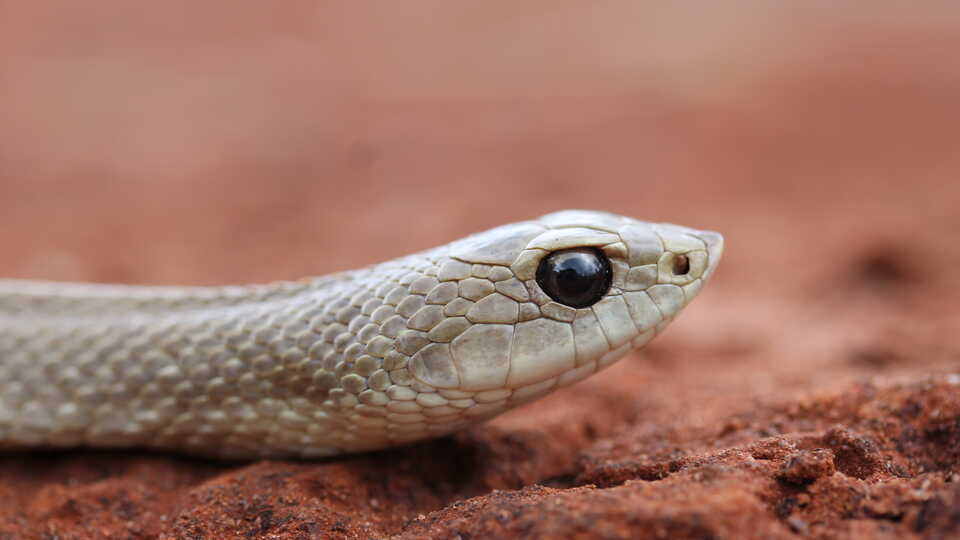
Learn more about the snake experts featured in our live Snake Patrick's Day programs! Each panel features flash-science talks and ends with live audience Q&A. (Please note: All times are listed in Pacific Standard.)
Panel 1: "Snakes & Primates, Mysterious Rattlers, & Malagasy Gemsnakes" (12 pm)
Dr. Harry Greene, Professor Emeritus at Cornell University
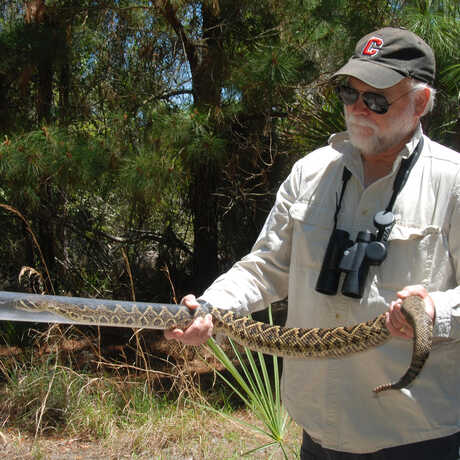
Harry W. Greene is emeritus professor of ecology and evolutionary biology at Cornell University. He graduated from Texas Wesleyan in 1968, served three years as an army medic, then earned graduate degrees from the University of Texas at Arlington and University of Tennessee, Knoxville. Before moving to Cornell in 1999, he was for two decades professor and curator in the University of California, Berkeley’s Museum of Vertebrate Zoology. Harry has taught animal behavior, vertebrate natural history, herpetology, introductory biology, evolution, and field ecology, all while studying predator evolution, ecology, and conservation in more than a dozen countries.
His honors include Berkeley’s Distinguished Teaching Award, Edward O. Wilson Naturalist Award, Henry S. Fitch Award for Excellence in Herpetology, and Cornell’s highest teaching prize, a Stephen H. Weiss Presidential Fellowship. In 2013 Business Insider named him one of Cornell’s “Top Ten Professors” and in 2014 he was elected to the American Academy of Arts and Sciences. Harry’s Snakes: The Evolution of Mystery in Nature, earned a PEN Literary Award, Commonwealth Club of California’s Silver Medal, and a place on the New York Times 100 Most Notable Books list. His recent Tracks and Shadows: Field Biology as Art, was highly praised in Publishers Weekly, Booklist, Science, Nature, Current Biology, The Sciences, Natural History, and Times Higher Education.
Dr. Jacobo Reyes-Velasco, Postdoctoral Researcher at NYU Abu Dhabi
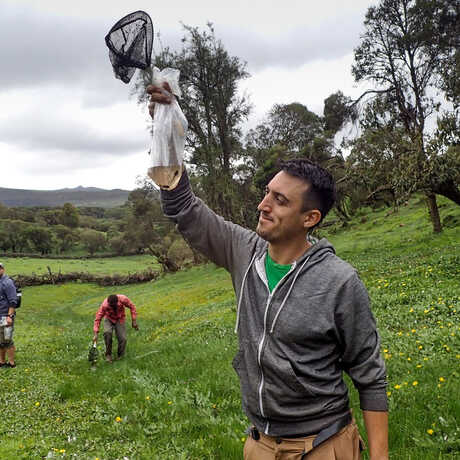
Jacobo Reyes-Velasco is originally from Colima, Mexico. After receiving his Bachelor’s degree in biology at the Universidad de Guadalajara (CUCBA), he earned his PhD focusing on the systematics of venomous snakes and the evolution of venom systems at the University of Texas at Arlington. He spent four years as a postdoctoral researcher at New York University Abu Dhabi, United Arab Emirates, where he studied the montane frogs of Ethiopia. Jacobo has authored numerous papers on the herpetofauna of Mexico and Ethiopia and is the co-founder of Entorno Biótico A.C. and HERP.MX AC, two non-profit organizations that focus on conservation initiatives and sustainable development in western Mexico. Currently he is working on a field guide to the herpetofauna of his home state, Colima.
Dr. Phillip Skipwith, Assistant Professor, University of Kentucky
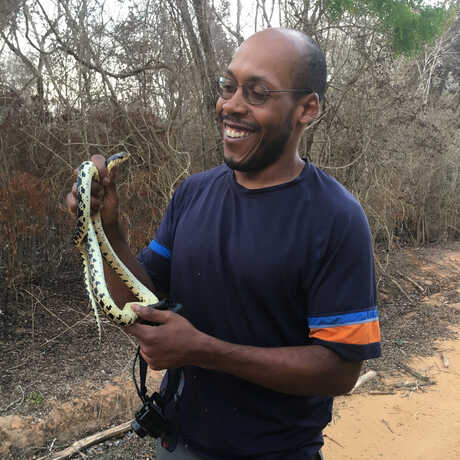
The Skipwith lab in the Biology Department at the University of Kentucky focuses on squamate reptiles to understand the mechanisms of diversification within lineages—specifically, the processes impacting the tempo of speciation and phenotypic change, the relationship between speciation and phenotypic diversification, and the phenomenon of convergent evolution. These are particularly pertinent subject areas when it comes to understanding the forces responsible for the generation of adaptive radiations. To date, Dr. Skipwith has used a variety of techniques, including phylogenomics and CT-scanning, and analytical methods to better understand the processes governing macroevolutionary dynamics.
Panel 2: "Snake Reproduction, Garter Snake Guts, & How to Make a Sexy Snake" (3 pm)
Erica Ely, Curatorial Assistant at the Academy’s Herpetology Department
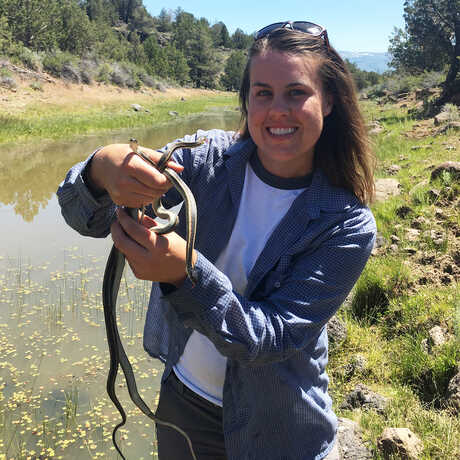
Erica Ely is the curatorial assistant in the Herpetology Department at the California Academy of Sciences. She's had a passion for California reptiles and amphibians since childhood. Her most recent project examines feeding habits of three species of garter snakes in the Sierra Nevada.
Aryeh Miller, PhD student at Washington University in St. Louis
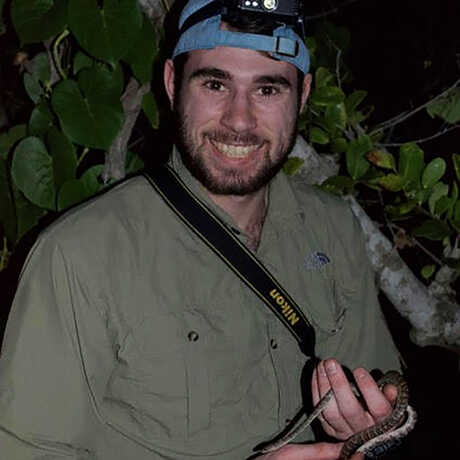
Ari Miller is an evolutionary biologist interested in understanding how evolutionary history relates to the origin and maintenance of biological diversity, particularly in lizards and snakes. He is a Research Fellow at the Smithsonian Institution’s National Museum of Natural History and a graduate student at Washington University in St. Louis.
Dr. Rocky Parker, Assistant Professor at James Madison University
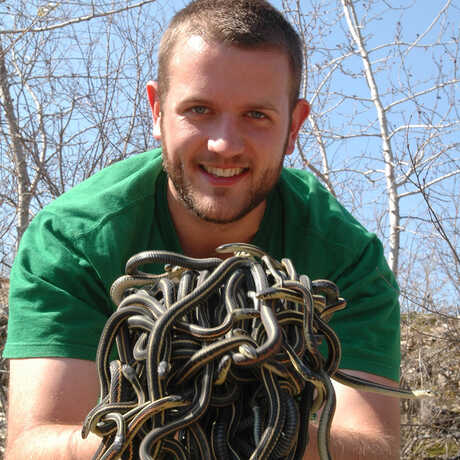
Dr. M. Rockwell (Rocky) Parker is an assistant professor at James Madison University where his research lab uses in vivo experimentation to address questions about how snakes make and respond to sex pheromones. He also collaborates with federal wildlife biologists at USDA and USGS to understand the chemical ecology of invasive reptile species in Florida. Rocky identifies as a cisgender gay man and is actively involved in supporting and expanding diversity, equity, and inclusion efforts in higher education.
Panel 3: "Sidewinder Secrets, Madagascar’s Snake-a-Palooza, and Flying-Snake Brains" (5:30 pm)
Dr. Arianna L. Kuhn, American Museum of Natural History
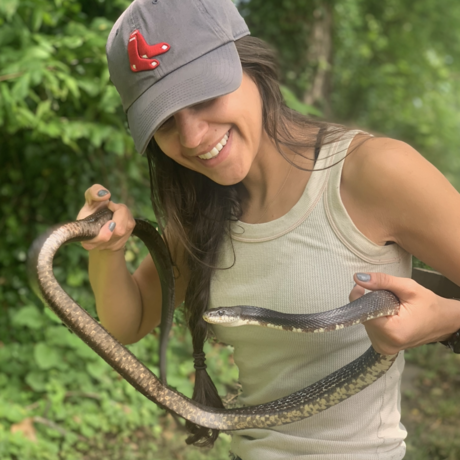
Arianna L. Kuhn is a graduate researcher at the American Museum of Natural History. She started her research journey working with geckos from Africa, helping to find and describe species new to science. She recently finished her doctoral studies on the evolutionary history of Malagasy gemsnakes. Her research looks into how these snakes responded to major environmental changes, which can be used to understand how new species originate and resist extinction in a threatened biodiversity hotspot.
Jess Tingle, PhD student at University of California Riverside

Jessica Tingle is a biologist interested in evolution, biomechanics, and all things limbless. She's currently at University of California, Riverside finishing her dissertation on specialized locomotion and morphology in snakes. Her research on sidewinding vipers has taken her to several of the world's deserts. When she's not sciencing, Jessica loves eating, cooking (but not baking), hiking, and listening to music.
Dr. Shaz Zamore, STEM Outreach Coordinator, ATLAS Institute, University of Colorado, Boulder
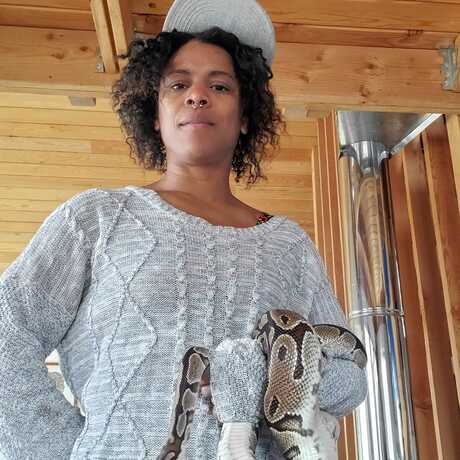
Shaz (Dr. Z) Zamore is a first-generation American (Jamaica, Commonwealth of Dominica, W.I.) with equal interests in creating accessible science outreach and education (with a neuroscience focus), and exploring and describing the unique sensations and neural processing of animals (mosquito and flying snake). Outside of science, Shaz's diverse interests range from cooking and breadmaking to woodworking, from musical performance to graphic design, and various athletic endeavors. Dr. Z holds a BS in Biological Sciences from Cornell University (2007) and a PhD in Neurobiology and Behavior from the University of Washington Seattle (2015).